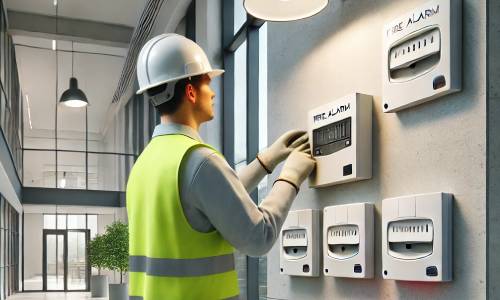Fire Alarm Maintenance
Ensuring fire safety with consistent and thorough fire alarm system maintenance.

Why Fire Alarm Maintenance is Essential
Fire alarm maintenance is critical to keeping your system fully operational and in compliance with local fire safety codes. Regular maintenance helps:
- Ensure that all components of the system function properly during an emergency.
- Detect and address potential faults before they cause system failures.
- Maintain compliance with safety regulations such as NFPA 72 (National Fire Alarm and Signaling Code).
- Improve the longevity of your fire alarm system and reduce costly repairs.

What Happens During Fire Alarm Maintenance?
- Notify local fire authorities about the maintenance schedule to prevent false alarms.
- Test all components, including fire alarm panels, smoke detectors, heat detectors, control panels, and strobes, to ensure they meet operational standards.
- Check backup power sources, such as batteries and generators, ensuring they are fully charged and functioning properly in case of a power outage.
- Inspect and clean smoke detectors, heat sensors, and other devices to remove any dust or debris that may impact performance.
- Check the wiring and connections for any signs of wear, corrosion, or damage that could compromise the system's integrity.
- Update maintenance logs and ensure that all devices are tagged for compliance and record-keeping purposes.
Maintenance Frequency
Annual Maintenance: A full system check, including all components like control panels, alarms, batteries, and detectors.
Biannual Maintenance: Sensitivity tests for smoke detection devices to ensure accurate response times.
Monthly/Quarterly Checks: Check batteries and test alarms briefly to ensure ongoing functionality.
Regular maintenance minimizes the risk of fire hazards and ensures that your fire alarm system is always ready when needed most.
